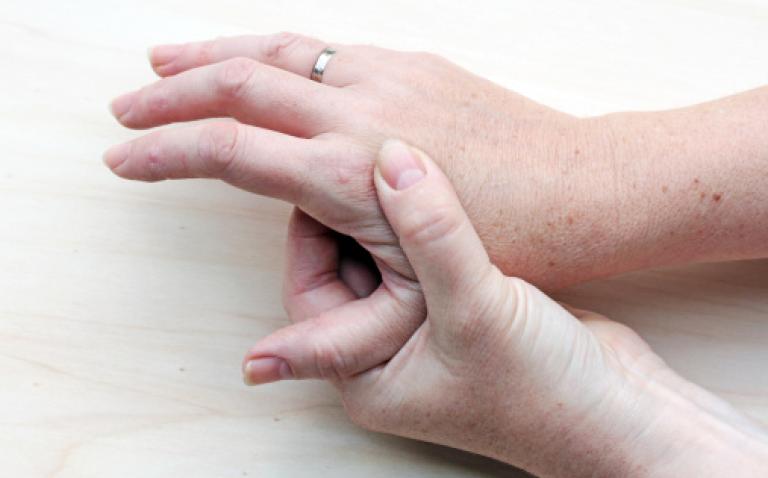UCB presented results from a Phase Ib study evaluating pharmacokinetics, safety, tolerability and preliminary efficacy of multiple doses of bimekizumab in patients with psoriatic arthritis (PsA) who had inadequate responses to at least one disease-modifying anti-rheumatic drug (DMARD) and/or one biologic.
A total of 52 patients were randomised to receive either bimekizumab (n=38) or placebo (n=14). In the Phase Ib study with a limited patient and exposure set, bimekizumab showed fast and sustained efficacy on disease activity measures in both skin and joints and was well-tolerated. These findings were presented at the Annual European Congress of Rheumatology (EULAR 2016) in London, England (8–11 June 2016).3
“These data strengthen our understanding of bimekizumab and how its unique mechanism of action, which inhibits both IL-17A and IL-17F cytokines, could provide clinical benefits to patients living with immunological diseases such as PsA,” said Dominique Baeten, MD, PhD, Professor at the Department of Clinical Immunology and Rheumatology of the Academic Medical Centre/University of Amsterdam. “PsA is a very serious disease with a broad range of symptoms, including swelling and pain in the joints, which can significantly impact a patient’s life. While we’ve seen advancements in the treatment of PsA with the introduction of biologics, it’s crucial that we keep looking for newer and potentially better ways to control this devastating condition, especially in patients who aren’t responding to existing therapies.”
Psoriatic arthritis affects approximately 0.3% to 1% of the population and is primarily characterised by joint and skin manifestations, with patients typically experiencing a combination of both psoriatic and arthritic symptoms causing skin and nail abnormalities and progressive, disabling joint damage and reduced quality of life.4,5 New treatment options are needed for this serious disease.
Bimekizumab is an investigational humanized IgG1 monoclonal antibody specifically designed to potently and selectively inhibit the biological function of both IL-17A and IL-17F, which are key pro-inflammatory cytokines involved in chronic inflammatory processes driving the pathophysiology of many severe diseases including skin and joint disorders, like PsA.1,2
“The results of this study demonstrate the potential of bimekizumab for patients living with PsA, who are in constant need for new treatment options that can target uncontrolled inflammation and suppress both the difficult joint and skin-related symptoms they experience,” said Emmanuel Caeymaex, Head of Immunology and Executive Vice President at UCB, Immunology Patient Value Unit, UCB. “With these study results, we can now confidently focus on progressing the bimekizumab clinical program and look forward to extending our robust immunology pipeline as part of our continued commitment to bringing more targeted treatment options to this patient community.”
The study evaluated multiple doses of bimekizumab compared to placebo for safety, tolerability, and efficacy, as measured by Psoriasis Area and Severity Index (PASI) and American College of Rheumatology (ACR) score. Bimekizumab demonstrated fast onset of response for both skin and joints with ACR20 response rates (RR) of 80% for the top 3 pooled doses (n=30) compared to a response rate of 17% in the placebo group (n=12) by Week 8. Additionally, findings showed a PASI90 RR of 87% (n=15) for patients receiving the top three doses of bimekizumab versus 0% (n=5) in the placebo group. Using a Bayesian statistical analysis, there was high posterior probability (>99%) that the ACR20 RR of bimekizumab at Week 8 was greater than those reported for current standard of care biologic treatments, including anti-IL-17A therapies. All doses of bimekizumab were well tolerated. No treatment-related serious adverse events (AEs) were reported and there were no treatment-related discontinuations.3
References
- Johansen et al. Characterization of the interleukin-17 isoforms and receptors in lesional psoriatic skin. Br J Dermatol. 2009;160: 319-324.
- Van Baarsen et al. Heterogeneous expression pattern of interleukin 17A (IL-17A), IL-17F and their receptors in synovium of rheumatoid arthritis, psoriatic arthritis and osteoarthritis: possible explanation for nonresponse to anti-IL-17 therapy?. Arthritis Res Ther. 2014; 16(4): 1-10.
- Glatt S., et al. Bimekizumab, a Monoclonal Antibody that Inhibits Both IL-17A and IL-17F, Produces a Profound Response in Both Skin and Joints: Results of an Early-Phase, Proof-of-Concept Study in Psoriatic Arthritis. Presented at the European League Against Rheumatism (EULAR) 2015 Congress. Abstract # OP0108.
- Gladman D.D., Antoni C., Mease P. et al. Psoriatic arthritis: epidemiology, clinical features, course, and outcome. Ann Rheum Dis. 2005; 64 Suppl 2: ii14-7.
- Kavanaugh A., Fransen, A., Defining remission in psoriatic arthritis. Clin Exp Rheumatol 2006; 24 (suppl. 43): S83-S87.










